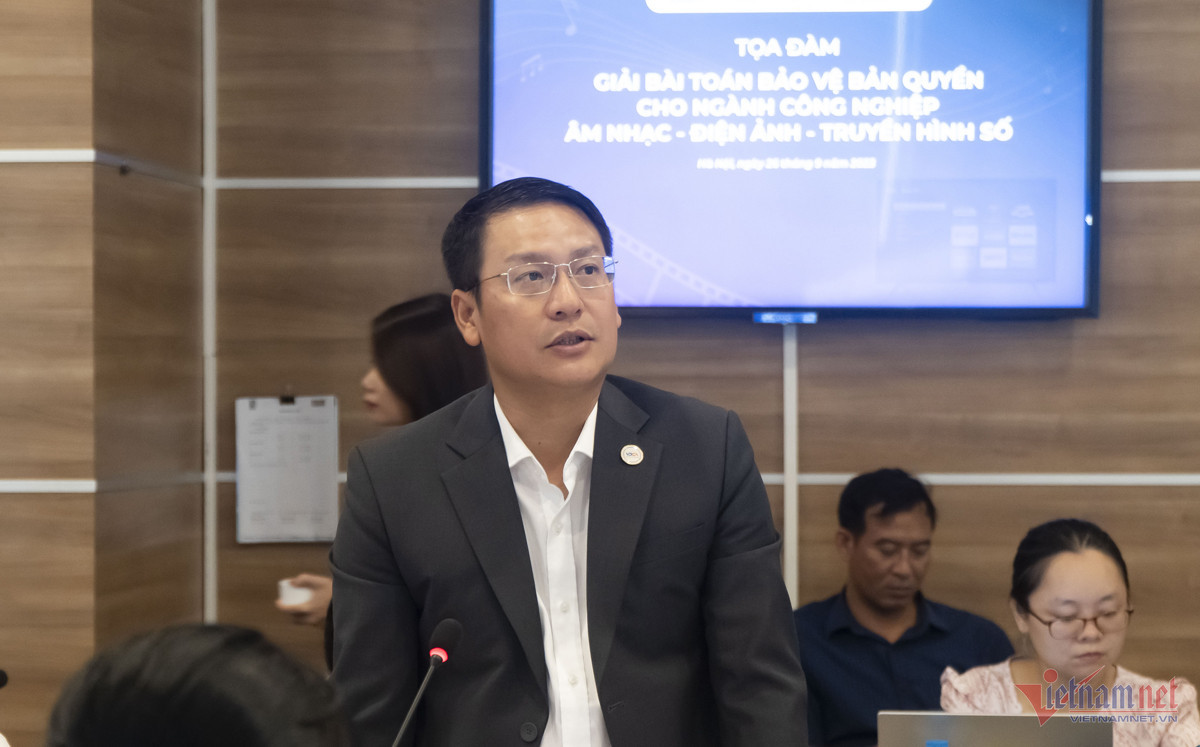
A seminar on protecting the copyright of the products of the music, cinema and digital TV industry was held several days ago. Organized by the Vietnam Digital Content Creation Alliance, Vietnam Digital Communications Association (VDCA) and Thu Do Multimedia, the seminar focused on a special field – music, movie and digital TV – which the highest number of copyright infringement cases that are the most difficult to be handled.
VDCA’s secretary general Vu Kiem Van said the copyright protection of digital content is facing difficulties in the context of the digital transformation.
Thu Do Multimedia CEO Nguyen Ngoc Han also said the digitalization revolution has brought unprecedented challenges in content security and copyright protection, stressing that new solutions are needed to protect content from the risks of being infringed.
Pham Hoang Hai from ABEI confirmed that many pirated websites broadcasting football matches and movies have been found recently.
According to SimilarWeb, there are 70 pirated football streaming websites with 1.5 billion views in 2022 and 2023, and there are over 200 pirated movie websites attracting 120 million views a month. Of these, the 10 best known pirated streaming websites have 66 million views a month.
Particularly, some pirated websites have been found eyeing Japanese Anime comics. The copyright infringement of comics has led to strong opposition from Japanese copyright holders.
According to Hai, most pirated websites use international domain names and a service hiding information. They operate blatantly and change domain names when they are blocked.
Regarding the infringement method, after real content copyright holders broadcast content on OTT platforms, digital terrestrial TV and digital satellite TV, scammers livestream the same contents on social networks, or post parts of the contents on their websites.
Lawyer Pham Thanh Thuy from K+ digital TV affirmed that the digital content copyright infringement is rampant on the internet. After football matches are broadcasted on K+ and its co-distributors’ channels, they will also streamed on pirated webs and apps.
Citing a report by Media Partners Asia, Thuy said Vietnam ranks third in the region in terms of copyright infringement, with 15.5 million people regularly accessing unlicensed webs. Violations on digital platforms are currently the main form of violations.
“Content copyright owners hope that there will be good anti-piracy measures. If just 10 percent of the total 15.5 million subscribers using pirated service turn into legal subscribers, we will have more money to make re-investment, or buy better contents, thereby, contributing to the development of the digital content industry in Vietnam,” Thuy said.
Blocking of pirated websites
ABEI affirmed that the use of technological solutions, including preventing access to websites in violation, has brought initial achievements, thus helping change consumers’ habit of using noncopyrighted content.
A report shows that 23 percent of Vietnamese internet users said they would not access pirated webs as a result of the automatic blocking.
However, problems still exist. ISP (internet service providers) still cannot reach an agreement on the measures and time to block illegal access to websites. Some ISPs block the access immediately, while some others only block the access after three working days or more. They are also not flexible enough to handle the new domain names created by closed pirated websites.
According to ABEI, it is necessary to establish a unit which coordinates content copyright holders, state management agencies and ISPs; set up a flexible blocking mechanism which chases and blocks new domain names soon after they arise; and apply various technical measures to block access.
It also mentioned the need to develop automatic blocking tools so as to help optimize the use of workers and avoid waste of time.
Thuy, after analyzing the difficulties in applying measures, both legal and administrative, civil and criminal, to fight against the copyright infringement on the digital environment, emphasized the new measures being applied in many countries, including access blocking and ‘Knock and Talk’.
Thuy suggested applying the measure being used in the UK. When pirated webs change their domain names after they are blocked for the first time, the ISP can continue to block new domain names and IP addresses after receiving a notice from copyright holders or state agencies, and there is no need to follow administrative procedures again.
Le My